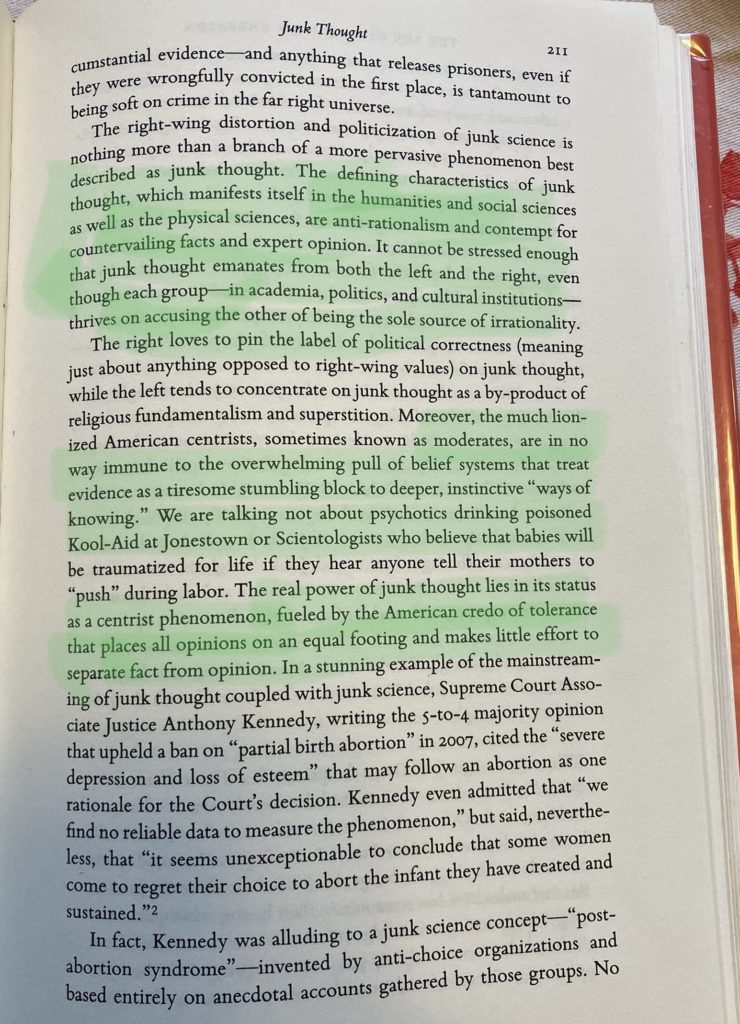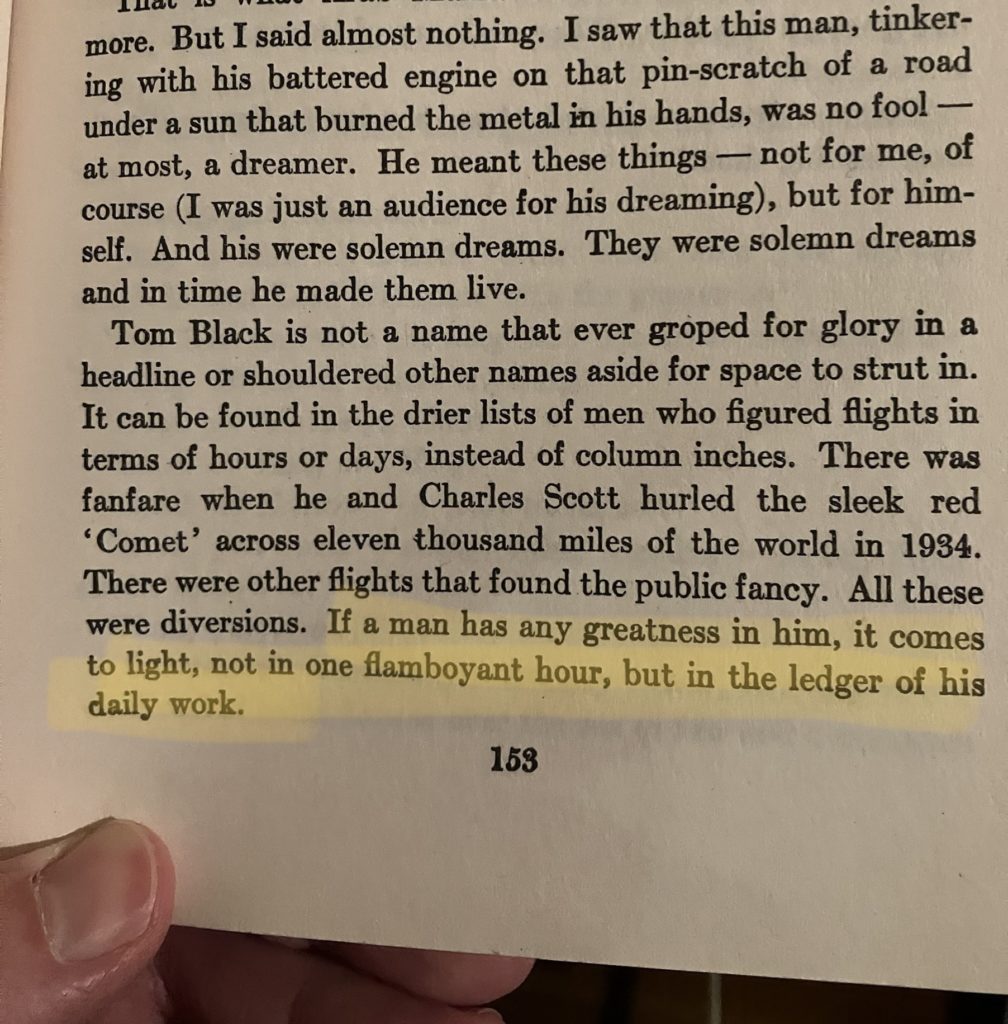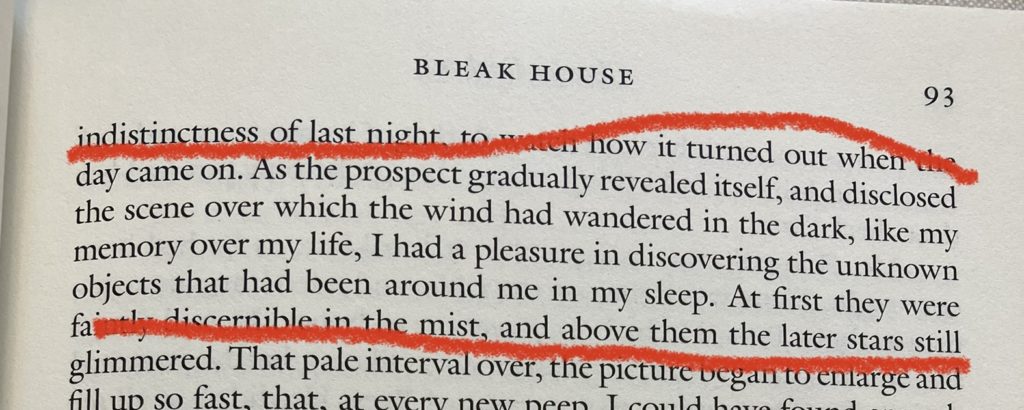
from The Age of American Unreason (pg 243)

The oldest and most obscure weblog. Probably. Lovingly maintained and neglected by Shawn Kilburn.


I like to say, as a moderate centrist, that everyone dislikes me just a little bit.

Social Darwinism sure has “trickled down”….

Seem familiar…?

Still true. It’s wild to imagine all the maps disappearing.

It’s funny how much I think of myself as not actually reading that much (I do a lot of other stuff, too) but when I sit down to write them all down, it starts to seem like a pretty large number.
Night Heron by Adam Brookes: A solid spy/thriller set in China. Tense and exciting. I wasn’t sure where this one was going to end up. I’m always a little skeptical of books about China written by Westerners, so definitely take this one with a grain of salt.
The Midnight Library by Matt Haig: I almost certainly read this one because it had the word "library" in the title. I’m wracking my brain trying to remember a thing about it. (I read a synopsis about it.) Oh yeah, I quite liked this story about a woman living different lives, in a multiverse kind of way. Clearly inspired by Borges’ "Library of Babel" story. I don’t know why it didn’t stick with me, even though I enjoyed reading it.
Termination Shock by Neal Stephenson: My biggest problem with Stephenson’s books is that I lose too much sleep to them. I enjoyed this one more than any of his books since the Baroque Cycle. I’m sure that Stephenson’s info dump style of writing isn’t for everyone, but of you’ve enjoyed any of his other books, you’re almost certain to enjoy this one too.
The Dragon’s Path (Dagger and Coin, book 1) by Daniel Abraham: I set out to read the first of The Expanse series, but instead I somehow ended up reading this fantasy story instead. It’s got that epic fantasy flavor, but it’s more about trade and diplomacy than war and fighting monsters. I liked the sedate vibe of this book. Characters who are good at what they do or discovering what they’re good at, struggling to succeed against pretty steep odds.
By Night in Chile by Roberto Bolaño: Read this for a book club. This is a solid intro to Bolaño, because it isn’t many hundreds of pages long. The story of a Catholic priest’s slide into corruption leading up to Pinochet’s coup and after. Dark, dark stuff. Not a pleasant read, but a pretty eye-opening one.
Desperate Characters by Paula Fox: Another one that I have pretty hazy memories of… Ah, yes. An unhappy married couple have an unpleasant weekend together. The cat (who bites the wife) is the most vibrant character in this book. It’s not quite an anti-marriage novel, but I can’t imagine someone wanting to rush off and get married after reading it. Pretty mesmerizing stuff, even though it whooshed out of my head pretty quick after finishing it.
The Return of the Soldier by Rebecca West: West’s book Black Lamb and Grey Falcon is one of my favorite books, so I was delighted and surprised when this short book turned up in my free library box. An emotionally fraught book about a solider returning from war and having no memory of his wife. Very odd.
The Guns of August by Barbara W. Tuchman: The story of the first month of WWI. Powerful stuff about how (probably?) smart and capable people can think themselves into catastrophe when given enough power and opportunity. Things that stood out: I had forgotten (or never knew) just how close Germany came to winning the whole thing in the first month; the English were completely hapless and almost entirely useless in the first month of the war; people were terrified of Russia’s army, but when they got into combat they proved to be a paper tiger.
Drown by Junot Diaz: A collection of short stories. Once I looked up the titles of the stories, I remembered them. "Edison, New Jersey" and "Negocios" were the ones that stood out for me.
Foundation by Isaac Asimov: I read this when I was a kid and, after watching the recent tv series, I was curious to reread it. I had forgotten how much it feels like a set of short stories. I think it holds up pretty well though. The adaptation has a very different vibe. The book has an almost jovial quality to it that the adaptation is completely lacking. It was fun to reread it.
It’s funny how I seem to read books faster than I can easily keep track of them here, but even while reading them seems to take longer than it should.
Lau Tzu: Tao Te Ching: A Book about the Way and the Power of the Way by Ursula Le Guin: Not so much a translation as a transliteration, I guess. Le Guin read several translations of the Tao Te Ching and used that to her craft her own version. Very poetic and worthwhile. Her forward (or afterward) to The Lathe of Heaven inspired me to read this.
Artificial Condition, Rogue Protocol, *Exit Strategy, Network Effect and Fugitive Telemetry by Martha Wells: Books 2, 3, 4, 5, and 6 of the Murderbot series. Sometimes it’s lovely to finish a book in one sitting. I read all of these on individual weekend afternoons. The plots blur together a little bit in my mind, but, in general, a satisfying SF series that noodles around with questions of what it means to be human.
Shady Characters: the Secret Life of Punctuation, Symbols & Other Typographical Marks by Keith Huston: A lot of fun historical tidbits in this book about the history of writing and printing. Granted, I’m the target audience for this book, but I think pretty much anyone would find something enjoyable in it. One of those books where I imagine you could read any chapter on its own.
All of the Marvels: a Journey to the Ends of the Biggest Story Ever Told by Douglas Wolk: This guy read all of Marvel’s comics (so you don’t have to) and wrote a book about the experience. Amazing! He has a lot of great insights about Marvel from reading decades of their comics as well as some useful thoughts on how to tackle incredibly large projects.
The Master of Go by Yasunari Kawabata: Journalism as novel. I don’t know much about the game of go, but I was entranced by the writing in this book and the story of a man who was playing his last go tournament after devoting his entire life to the game. A bit heart-breaking too.
The Last Emperor by John Scalzi: The last in the trilogy. This series is sort of epic, imperial science fiction-lite. I could easily imagine a version of this story that spans seven 700-page books. A good reminder that you can tell a pretty complex and interesting story with far fewer words.
Nocilla Experience by Agustín Fernández Mallo: An experimental novel. I don’t remember much about it. I may have lost some of the patience I had when I was younger for this type of book. Still, pretty short and I read it in an afternoon, which I always enjoy.
Slaves of New York by Tama Janowitz: Stories of terrible people in 1980s NYC. Sort of funny, in a mean way.
King Bullet by Richard Kadrey: The last in the Sandman Slim series. I enjoyed this supernatural noir series, but I think Kadrey was definitely getting tired of writing books in this series. It’s short and there’s not much to it, but if you’ve gone on the whole ride, it’s a worthwhile wrap up. Funny, for a series that I think you can read piecemeal.

It’s been a while since I looked back on books I’ve read, but I had a little spare time, so…
The climate swerve: reflections on mind, hope, and survival by Robert Jay Lifton: A short book that ties the environmental movement to the anti-nuclear movement. Lifton makes the point that the anti-nuke movement is a useful model, because, like the climate crisis, it involves an existential crisis.
She who waits by Daniel Polansky: In this urban, noir, fantasy novel, "She Who Waits" is the goddess of death. The final in a trilogy of books, this one gets pretty dark. It’s a solid noir story though, if you’re into that kind of thing.
On fragile waves by E. Lily Yu: The story of an Afghani family illegally emigrating to Australia and applying for refugee status. Humanizing and powerfully tragic.
No gods, no monsters by Cadwell Turnbull: I don’t have strong memories about this one. The premise: how would people collectively react if monsters were proven to be real? Turns out, they wouldn’t do much. Some interesting ideas in here, but it didn’t really stick with me.
A deadly education and The last graduate by Naomi Novik: What if there was a school of magic, but it tried to kill its students? This is a fun spin on the Harry Potter thing.
The builders by Daniel Polansky: A group of bandits seek revenge. Only they’re all animals. Pretty great short little yarn.
The shortest history of China by Linda Jaivin: I realized I didn’t have a great sense of the grand arcs of Chinese history. This one filled in that gap. Extremely readable, but very light.
Gentlemen and players by Joanne Harris: A satisfying whodunnit. I mostly had no idea what was going to happen until the very, very end.
Everything we miss by Luke Pearson: I had completely forgotten about this one. It’s a comic about how things like depression can blind us to the world around us. Short, but powerful. (Unfortunately, for me, not very memorable.)
Just one damned thing after another by Jodi Taylor: The first in a long series of time travel novels. Pretty entertaining, but I feel like I got what I needed out of the first one. Probably won’t read more of them.
Real tigers by Mick Herron: A group of washed out British spies. This one is #3 in the series, I think? Pretty great. The books in these series are pretty interchangeable. If you like one, you’ll probably like the others.
Hero of two worlds: the Marquis de Lafayette and the Age of Revolution by Mike Duncan: The story of how Lafayette played a crucial role in both the American and French revolutions. Fascinating stuff!
Ready Player Two by Ernest Cline: I could see Cline struggling to address the problems and issues raised by the first book. He somewhat succeeded in exploring the problems with having absolute power. Interesting, but extremely light.
Living in data: a citizen’s guide to a better information future by Jer Thorp: A poetical meditation on the data milieu we’re all swimming through. Extremely worthwhile.
The dangers of smoking in bed by Mariana Enríquez: A powerful set of short stories. Very much in the vein of magical realism a la Gabriel García Márquez.
Everything now: lessons from the city-state of Los Angeles by Rosecrans Baldwin: A love letter to LA. I’d never want to move to LA, but this book helped me understand why people want to.
Subcutanean 36619 by Aaron A. Reed: An interesting experiment in procedurally generated novel writing. A story about parallel universes. If you order a copy from the author, it will be a little bit different from other copies.
The Witchwood Crown by Tad Williams: I loved the Memory, Sorry, and Thorn trilogy. This is a follow up trilogy. A meditation on middle age, legacy, and the folly of youth. I’ll definitely read the rest.
Continuous discovery habits: discover products that create customer value and business value by Teresa Torres: A book I read for work. Some useful insights here.
Children of the fang and other genealogies by John Langan: Horror short stories. Some pretty chilling stuff.
The Rift by Nina Allan: A girl’s older sister disappears without a trace and then apparently reappears decades later. Powerful stuff.
Into the wild by Erin Hunter: The first of the Warriors series. I read this because my kid is super into this series and I wanted to see what it was all about. I can see why these are appealing and we had a great chat about it, after.
The invisible life of Addie Larue by VE Schwab: A woman is cursed by the devil to live forever and never be remembered. Compelling reading. I enjoyed it a lot.
All systems red by Martha Wells: The first of the Murderbot stories. I see why people have been raving about these books.
LaserWriter II by Tamara Shopsin: The story of an Apple repair shop in NYC in the 90s. Extremely charming. Captures a moment in time that’s long gone.
The lathe of heaven by Ursula K. Le Guin: A psychiatrist hypnotizes a man into altering reality. The protagonist is a true Taoist hero. Mesmerizing and deeply weird.
The Rosewater insurrection by Tade Thompson: Science fiction centered in Nigeria instead of, as per usual, the United States. This is a sequel in the Wormwood trilogy.
House of chains by Steven Erikson: Book 4 in the Malayan series. This was a reread. The best I’ve read so far in epic fantasy.